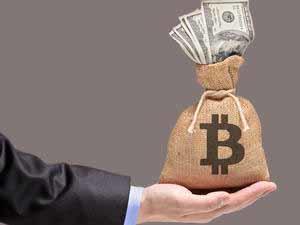Bitcoin Primer: Bitcoin as Money
As Bitcoin begins to grow, there are going to be more and more experts coming out to talk about how Bitcoin is not real money, how it is not based on anything real.
Of course, for those who have already adopted Bitcoin, and for many others who keep up with the financial pages, there will be a recognition of both the truth, and the fallacy of this. The value of money, whatever it is that we deem to call money, is only money as long as the two people trading with it agree that it has value. This is true in the case of gold, gold-backed dollars, fiat currency, shells, or Yappian Rai. No agreement that they are money, and they are just things.
As long as a group of people have decided that something is currency and have a generally understanding as to its value, then an economy can grow. This is where Bitcon stands right now. A group of people have decided that, for various reasons, this digital currency has value. They use it both to buy things and to invest. And for both of these things, Bitcoin in exactly the same way that gold or the US Dollar are.
But, I hear the cry, gold has inherent value and the US Dollar has the full faith and credit of the US Government behind it. Well, actually, gold is pretty volatile; I have seen it rise and fall a few times in my life. If it has inherent value, that value does not keep it stable against the Dollar. And the Dollar has been slowly, but steadily losing value since, well, its inception. As a current resident of Japan, I can tell you that I have seen some pretty severe renegotiations over the worth of a dollar.
Money is what we make it. So when the pundits come out to say that Bitcoin is not real money, but then you look around and you see people buying everything from bread to houses with it, when you see people taking their salaries in it, when you see people socking it away for the future, then you can rest assured that it is, in fact, money.
This commentary was inspired by the following piece that I found on Troy Media. I am reprinting it here in full, although I do not agree with the authors’ final argument that the value of bitcoin needs to be tied to something. My own argument is that Bitcoin’s value will be tied to its utility. The scale of adoption, and the volume of usage will determine Bitcoin’s final market value. Just on that basis alone, I feel that the potential for growth is huge.
Please feel free to agree, disagree, or correct in the comments. I always love to hear from my readers.
——————————————————————————————————————————————————————–
EDMONTON, AB, Apr. 21, 2013/ Troy Media
Benjamin Franklin was a famous diplomat, scientist, writer, and Founding Father of the American Republic. He also knew a thing or two about money.
In 1729, at the age of 23, Franklin published a pamphlet in colonial Pennsylvania entitled, ‘A Modest Inquiry into the Nature and Necessity of a Paper Currency‘. In it, he addressed three key monetary questions that are very seldom asked: what is money? Who should be entrusted to create money, and, what, if anything, should backstop money to support its value?
Ironically, these are the very questions going through the mind of Jon Matonis, secretary of the Bitcoin Foundation. Matonis and his associates are guardians of the complex computer algorithms that lie behind the Bitcoin, the revolutionary new digital currency. Unfortunately, the value of the Bitcoin (in dollar terms) has taken a bit of a roller coaster ride recently. Last Wednesday it peaked in value at $266 and then crashed to $54, causing huge dollar losses for people holding Bitcoin assets. Franklin, if he were still alive, would remind Matonis that money is almost infinitely complex and has several contradictory roles. In particular, money’s role as a ‘store of value’ –which simply means able to be saved, retrieved and used at a later time –often collides headlong into its role as a medium of exchange.
In the early 18th century Franklin championed the idea of a ‘colonial’ currency; paper money issued directly by colonial legislatures. Franklin understood that a chronic shortage of gold and silver coins, the standard Imperial currency, was harming the economy. When the Pennsylvania legislature starting issuing its own paper (fiat) money it significantly increased the supply of money, which increased business volumes and helped end the recession: to the delight of the locals.
The Bitcoin was created for similar reasons, that is, to redress a chronic shortage of money in key sectors of the modern economy. You may be surprised to hear there is a shortage of money at all.
But take a look at the financial needs of the small business and tech sectors today. Most modern commercial bankers (and most venture capitalists) do not have the ability or interest in lending capital to either sector. Like Franklin’s ‘colonial’ currency, it is the Bitcoin that is providing the resources needed to accelerate growth in these undercapitalized sectors of the economy.
But if the Bitcoin is going to be a real ‘currency’ it also needs to fulfill money’s second role as a ‘store of value’. The problem is that uniting the two roles of money, as a medium of exchange and a store of value is extremely difficult. As such, there has rarely been a form of currency in our economic history which has accomplished the role as a genuine store of value that reflects the Well Being conditions and aspirations of our communities and economies.
Like other modern forms of currency, Bitcoins are not a genuine store of value. Bitcoins are nothing more than digits or numbers that reside on the hard drives of those who are using it as a unit of exchange. The power of the Bitcoin is as vulnerable as our current money (currency) in that its purchasing power can be wiped out by a crash of your hard drive or a loss in confidence in its purchasing power, such as we witnessed last Wednesday.
Two of best movies that epitomize our modern money systems are The Wizard of Oz and Mary Poppins. In The Wizard of Oz, Dorothy realizes that the wizard of the Emerald City, who represents the modern banker, has no more power or courage than she, the Lion, Tinman or Scarecrow have. Once the veil of the power of the wizard is exposed, the power and trust in ‘OZ’ (short form for ounces of gold), the ‘yellow (gold) brick road’ and the ‘Emerald City’ quickly goes up in a puff of smoke.
In Mary Poppins, the young son of the banker asks the bank teller to give back his tupence, which results in other customers in the bank asking for all of their deposits. The result is a classic ‘run on the bank’; the bank must close its doors because it lacks sufficient reserves of cash to return 100 per cent of the cash in its customer’s deposit accounts.
The global financial system is equally as vulnerable today to the potential for a broad systemic collapse through the loss of confidence in the power of money as both a unit of exchange and store of value. We need only look at the experience of Iceland, Greece and Cyprus. It’s only a matter of time until this same movie script plays out in the U.S. and Canada.
Our faith –and it is nothing more than faith –in the purchasing power of gold, money or Bitcoins is tenuous. Modern money only has power as long as our collective faith in its capacity to act as a store of value and unit of exchange endures. When confidence in modern money evaporates, then the purchasing value, as with Bitcoins, collapses.
What are the alternatives to our current, vulnerable fiat money and debt system? And can Bitcoin be a genuine store of value tied to the five capitals of genuine wealth –natural, human, social, built and financial –that support a community and advance the wellbeing of its citizens?
Franklin’s answer to this problem was unique for his time: backstop the colonial paper money supply with something real: not base metals, but Pennsylvania’s sturdiest asset, land. Why land? Because he realized that genuine money is derived from real value that resides elsewhere, in a more primary source. For Franklin that primary source must be a solid asset and ultimately that asset needed to be translatable relatively easily into labour. He preferred land both because, unlike base metals, it was readily available in Pennsylvania and because land was more likely to hold its labour-value than gold and silver coins.
In other words, what we call Genuine Money is tied to real assets, including land and natural capital resources, and the human and social capital assets that are the hallmark of our modern knowledge/ideas-based economy. That is Genuine Wealth.
Bitcoin would be better advised to follow Franklin’s lead and consider a Genuine Money system. Franklin supported the colonial currency with land, which effectively monetized the property assets of Pennsylvania residents. Perhaps the Bitcoin could use the same formula to monetize the many nontraditional assets in our economy, including intangibles ideas, trust, and relationships. Done effectively, it would shore up and preserve the value of the Bitcoin while creating a flourishing economy of wellbeing in the starvation zones of our economy.
Robert McGarvey and Mark Anielski are both economists and co-founders of Genuine Wealth, a Canadian enterprise whose mission is to help businesses, communities and nations mature into flourishing economies and enterprises of wellbeing.

